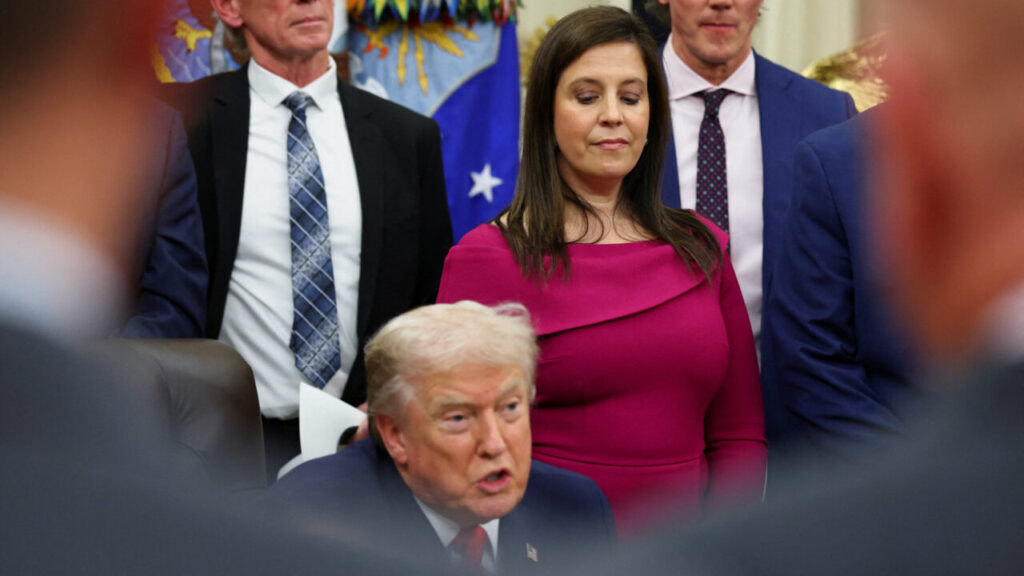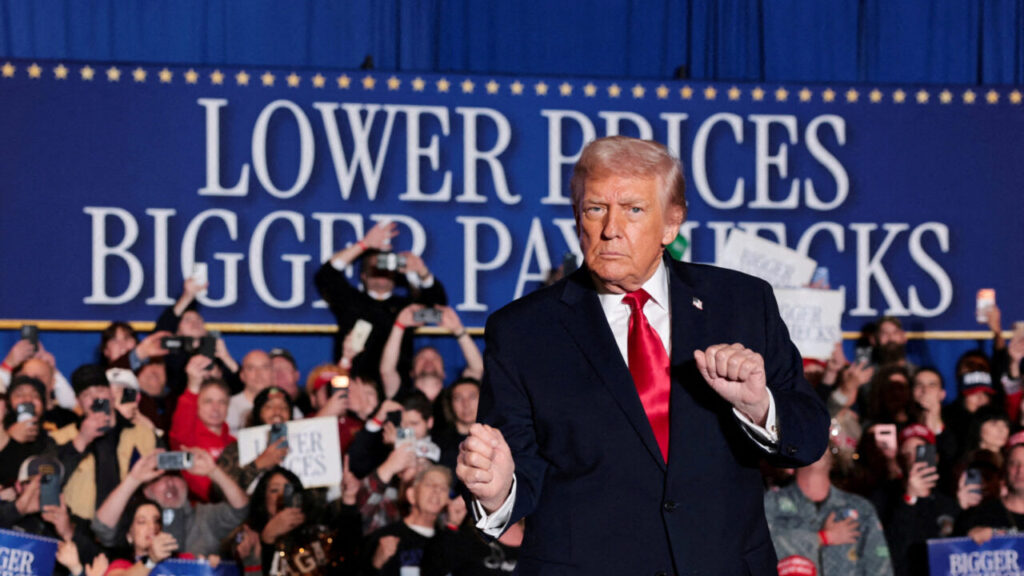Scott Rickard argues that Trump’s alliance with Netanyahu is less about shared values and more about coerced loyalty driven by pro-Israel lobbying power. Photo: President Donald Trump welcomes Israeli Prime Minister Benjamin Netanyahu at the entrance of the White House in Washington, D.C., April 7, 2025. (Reuters File)

- Trump’s alignment with Netanyahu appears more coerced than genuine, driven by fear of powerful pro-Israel lobbying and donor networks.
- Despite public unity, Trump’s discomfort during meetings with Netanyahu contrasts with his enthusiasm for other Middle Eastern leaders.
- The U.S.–Israel alliance is portrayed not as mutual diplomacy, but as political submission maintained through lobbying, media, and financial pressure.
Share
|
Getting your Trinity Audio player ready...
|
In analyzing President Donald Trump’s interactions with Israeli Prime Minister Benjamin Netanyahu, it becomes increasingly evident that their relationship is neither one of mutual respect nor shared values, but rather a performance dictated by entrenched political coercion.

Scott Rickard
Opinion
Despite public displays of solidarity, Trump’s demeanor — particularly during joint appearances with Netanyahu — reveals discomfort and a lack of genuine rapport.
These interactions stand in stark contrast to his more relaxed and visibly enthusiastic engagements with leaders from Saudi Arabia, Qatar, and other Middle Eastern states, where economic and strategic negotiations were central and beneficial to U.S. interests.
This dissonance suggests that Trump’s alignment with Netanyahu is not driven by national interest or ideology, but rather by a deep-rooted fear of political reprisal from the powerful pro-Israel lobbying apparatus in the United States. Organizations like the American Israel Public Affairs Committee (AIPAC), coupled with influential billionaire donors and tightly controlled political patronage networks, have created a political environment where deviation from pro-Israel orthodoxy can spell the end of a political career.
The unspoken threat of reputational or legal exposure — symbolized for many by the unresolved implications of the Jeffrey Epstein network — adds an additional layer of unacknowledged coercion.
Trump’s public posture toward Netanyahu thus appears less like diplomacy and more like forced compliance — a survival tactic within a system dominated by Zionist political pressure. The American public is led to believe this is a strategic alliance based on shared democratic values.
In reality, it is a spectacle of submission, maintained through a combination of lobbying power, media influence, and financial entanglement.
If Trump were genuinely committed to an “America First” doctrine, he would resist foreign manipulation rather than acquiesce to it. Instead, his administration — like many before it — remained entangled in Israel’s political priorities, often to the detriment of broader U.S. diplomatic credibility.
The larger implication is damning: the U.S. political infrastructure, long championed as a beacon of sovereignty and democratic agency, has been deeply compromised by an external lobby operating with near impunity.
This is not alliance. This is extortion dressed in the costume of diplomacy.
About the Author
Scott Rickard is a former U.S. intelligence linguist with over 40 years of experience in cybersecurity, signals intelligence, communications technology, and national security. He has worked across government, defense, telecommunications, and international business sectors, specializing in SIGINT, COMSEC, OSINT, ISR, and open-source geopolitical analysis.
Make Your Voice Heard
GV Wire encourages vigorous debate from people and organizations on local, state, and national issues. Submit your op-ed to bmcewen@gvwire.com for consideration.



















